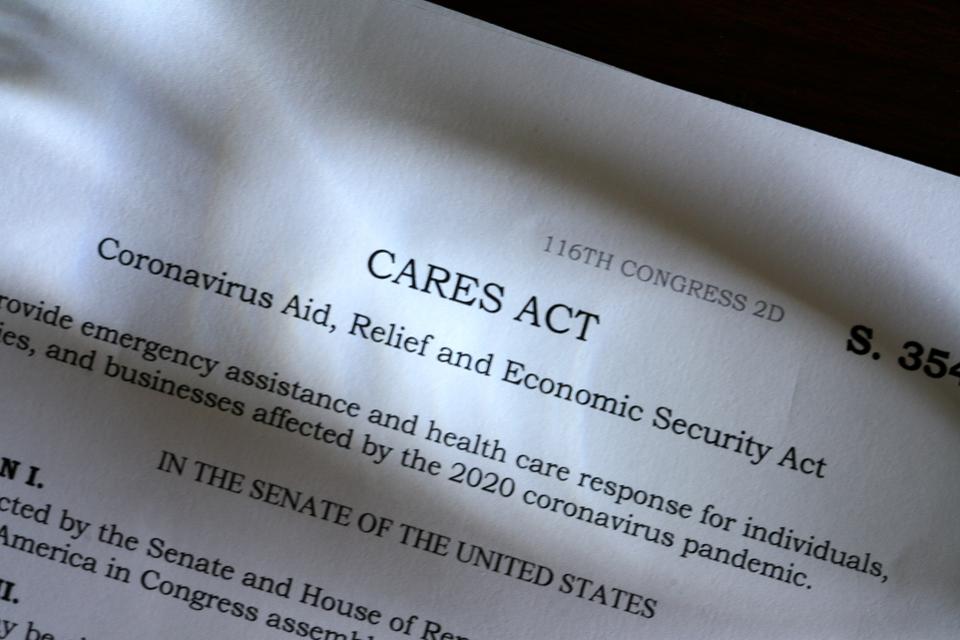On March 27, the President signed into law the Coronavirus Aid, Relief, and Economic Security Act (CARES Act), which is aimed at providing financial relief for the economic downturn caused by the Coronavirus pandemic. This summary includes some of the more pertinent issues to small businesses.
Paycheck protection program (business loans / grants)
To determine whether a business is eligible for this program, the CARES Act require lenders to ascertain: (1) whether a business was operational on February 15, 2020, and (2) whether the business had employees to whom it paid salaries and payroll taxes, or paid independent contractors, and (3) whether the business was substantially impacted by COVID-19.
The requirements to be eligible for the loan are as follows:
- The loan is needed to continue operations during the COVID-19 emergency
- The funds will be used to retain workers and maintain payroll or make mortgage payments, lease payments, and utility payments;
- You cannot be receiving another benefit from the CARES act (i.e. employee retention credit)
The terms of these loans are as follows:
- Interest Rate: During the covered period, a covered loan shall bear an interest rate not to exceed 4 percent
- Payment Deferment: 6-12 month of deferment including principal, interest and fees
- Origination Fees: Lender reimbursed by the SBA
One of the most important aspects of the program is the way in which loan principal can be forgiven. Under the terms of the legislation, principal can be forgiven in an amount equal to the following costs incurred during the covered period of February 15, 2020 through June 30, 2020, such as Payroll costs, Mortgage interest, Rent and Utilities.
Any amounts forgiven will be reduced proportionally by any reduction in the number of employees retained compared to the prior year and reduced by the reduction in pay of any employee beyond 25 percent of their prior year compensation. Borrowers that re-hire workers previously laid off will not be penalized for having a reduced payroll at the beginning of the period. Most importantly, indebtedness cancelled will not be included in the borrower’s taxable income.
Action required: Discuss this with the lender where you do your banking to see if it applies to you.
Business tax relief provisions
Employee Retention Credit: The bill creates a refundable payroll tax credit for 50 percent of wages paid by employers to employees during the COVID-19 crisis. The credit is available to employers whose (1) operations were fully or partially suspended, due to a COVID-19-related shut-down order, or (2) gross receipts declined by more than 50 percent when compared to the same quarter in the prior year.
The credit is based on qualified wages paid to the employee. For eligible employers with 100 or fewer full-time employees, all employee wages qualify for the credit, whether the employer is open for business or subject to a shut-down order. The credit is provided for the first $10,000 of compensation, including health benefits, paid to an eligible employee. The credit is provided for wages paid or incurred from March 13, 2020 through December 31, 2020.
Note that this is not available for business owners receiving Small business interruption loans under the CARES act. These credits must be reduced by any credits received under the Families First Coronavirus Response Act.
Action required: Discuss this with us to see if it applies to you. If applicable, contact your Payroll company (e.g. Paychex, ADP, etc.)
Delay of Employer Payroll Taxes: Employers generally are responsible for paying a 6.2-percent Social Security tax on employee wages, and the bill allows employers and self-employed individuals to defer payment of the employer share of the Social Security tax they otherwise are responsible for paying to the federal government with respect to their employees. The provision requires that the deferred employment tax be paid over the following two years, with half of the amount required to be paid by December 31, 2021 and the other half by December 31, 2022. Please, consider whether paying those taxes later might come back to bite you.
Action required: Contact your Payroll company (e.g. Paychex, ADP, etc.)
The US Senate Committee published a Small Business Guidance on the CARES Act – Small Business Owner guidance – US senate committee
The CARES Act Tax Briefing from Wolters Kluwer is an excellent Special Report if you want more detailed information – CCH Tax Brief_CARES Act


